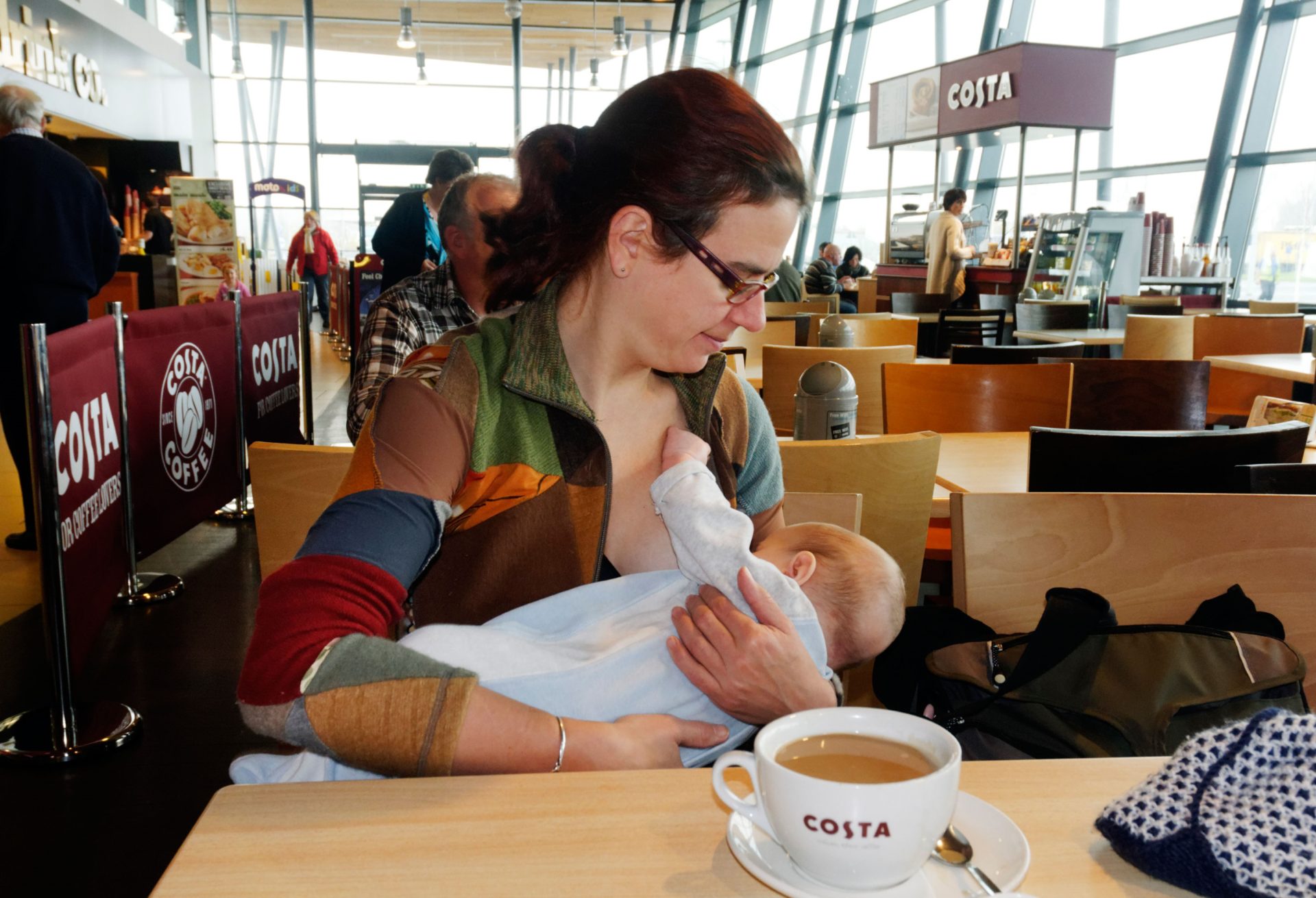Breastfeeding is “extremely important” for babies and benefits the health of the mother as well, Luke O’Neill has said.
In the short-term, breastfeeding helps protect a child from chest, ear and tummy infections.
 A young mother breastfeeding. Picture by: CBW / Alamy
A young mother breastfeeding. Picture by: CBW / AlamyWhile in the long-term, it reduces the risk of obesity and lowers the chance of them developing food allergies.
It can also cut the mother’s chance of being diagnosed with breast cancer, ovarian cancer and diabetes.
On The Pat Kenny Show, Professor O’Neill said further research into breastfeeding has confirmed yet again the benefits to both mother and baby.
“Very importantly, you transfer antibodies from the mother into the infant through the breastmilk,” he explained.
“These antibodies then protect the baby, so it’s a really important way to protect babies from infections basically.
“In Ireland, we’re not doing great; we’ve got one of the lowest rates of breastfeeding in Europe.
“It starts at 60% at birth but it drops to like 10% by six months, so it’s very important to get the message out.”
 A mother breastfeeding a baby. Picture by: Alamy.com.
A mother breastfeeding a baby. Picture by: Alamy.com.Professor O’Neill continued that it is not clear why breastfeeding rates are low in Ireland, but that it might be linked to cultural reasons.
He added that it is important to encourage mothers to breastfeed if it is possible for them to do so.
“There’s an antibody in the breastmilk - and remember antibodies are your great immune weapon that can kill viruses and bacteria,” he said.
“There’s one called IgA and it coats the baby’s mouth and throat, all the way down to the digestive system, like a shield and stops the bacteria and virus sticking.
“To compare breastfeeding to formula, there’s a 70% decreased risk of hospitalisation in the first few months of life because of infectious diseases.
“There’s live cells in the breastmilk; there’s immune cells in the milk and they go into the baby.
“They’re there to fight the infection because remember the baby’s immune system is underdeveloped.”
A woman who has concerns about breastfeeding can request a one-to-one consultation with a hospital lactation consultant before the birth of her baby.
Main image: Luke O’Neill in the Newstalk studio. Image: Newstalk









